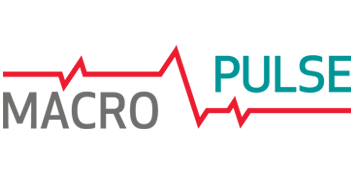
Industrial production has returned to pre-pandemic level
In accordance with GUS data, the sold production of industry in enterprises employing more than 9 people increased by 5.9% YoY in September vs. a 1.5% increase in August, running slightly above our forecast (5.3%) and markedly above the market consensus (3.8%). The main reason for the increase in the dynamics of industrial production between August and September was a favourable difference in the number of working days (in August 2020 the number of working days was one day lower than in 2019, while in September 2020 it was one day higher than the year before - including one day off for holiday falling on a Saturday in August 2020). Seasonally-adjusted industrial production increased by 3.0% MoM in September. Consequently, the seasonally-adjusted production stood in September at the same level as in February 2020, namely in the last month before the strong pandemic effect on production.
Recovery in global trade supports industrial production in Poland
September, like August, recorded further recovery of activity in segments with a significant percentage of export sales in revenues. At the same time, they remained one of the main sources of industrial production growth. An increase in the annual production dynamics was recorded i.a. in “electrical equipment” (26.6% YoY in September vs. 10.3% in August), “machinery and equipment” (-5.7% YoY vs. -16.2%), “leather and leather products” (2.0% vs. -7.7%), “textile products” (12.9% vs. 4.0%), and “furniture” (15.8% vs. 8.4%). The factor behind higher production in the export-oriented branches is the gradual recovery in global trade, signaled earlier by the September business survey results for China and the Eurozone, including Germany (see i.a. MACROmap of 5/10/2020). The structure of the branches which recorded a sharp increase in industrial production indicates that consumption is one of the main sources of the recovery in global trade.
Growing production for construction purposes
Noteworthy in the data structure are also higher production dynamics in branches responsible for the supply of source materials and materials used in construction projects, namely i.a. in the categories “manufacture of metal products” (7.8% YoY in September vs.0.4% in August) and “other non-metallic products (5.9% vs. 0.2%). However, this does not alter our view that nearest months will not bring a marked improvement in the outlook for the construction branch. Tomorrow’s data on construction-assembly production (we forecast that it dropped by 9.0% YoY in September vs. a 12.2% decline in August) are likely to confirm further decline in construction activity.
The second wave of the pandemic posing risk to GDP growth
Despite the close-to-our-expectations data on the September industrial production we see - due to the second wave of the pandemic - a substantial downside risk to our scenario of economic growth in Q4 2020 and Q1 2021. We still assume that the second wave of the pandemic will not result in the international supply chains being broken again. We nevertheless believe that the administrative restrictions imposed due to a deeper-than-expected deterioration of the epidemiological situation will be reflected by lower mobility of households and households’ lower propensity to consumption, which will have a negative impact on the economic activity in the coming months. We will present our revised macroeconomic scenario in the next MACROmap.
Today’s better-than-expected data on industrial production in September are slightly positive for PLN and yields on Polish bonds.

